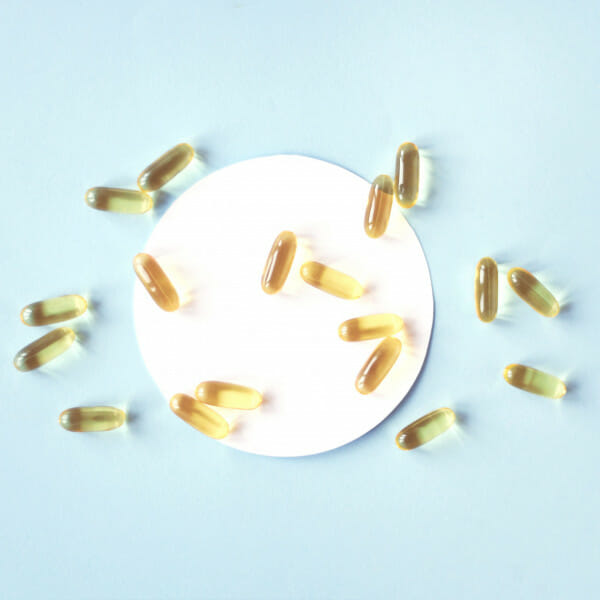Anxiety Supplements – The Unbiased Scientific Truth, Evidence-Based Health Benefits
Each product we feature has been independently selected and reviewed by our editorial team. If you make a purchase using the links included, we may earn a commission.
Introduction
Stress disorders constitute one of the most frequent mental health problems in the planet. They’re a source of considerable economic burden on our society because they impede our workforce productivity.
Many treatment options can help patients suffering from these disorders. Both prescription meds and herbal & dietary therapies can be employed to treat these disorders.
Different patients respond to different treatment strategies. Prescription drugs can successfully treat anxiety in a lot of patients, though some of them continue to suffer.
The field of complementary and alternative medicine has expanded its scope over the last few years.
More than 1 in 2 adults utilize some form of complementary and alternative medical treatments in the United States. These treatments mostly take the form of herbal remedies or dietary supplements.
We must take into consideration that the Food and Drug Administration (FDA) regulations do not apply to these products. Therefore, these products do not undergo as vigorous scrutiny as FDA approved medications.
Like any other product, they are not without their side effects. They are not suitable for everybody.
Not everyone can take exactly the same dose because dose adjustments might be necessary for patients of old age, a substantially higher or lower body mass, or decreased kidney function.
Natural Anxiety Supplements: Do These At-Home Relief Products Work?
Several herbal remedies have been studied as a treatment for anxiety, but more research is needed to understand the risks and benefits.
This article will go over some of the alternative remedies for the treatment of anxiety. It is purely for informational purposes.
If you are thinking of using these products to treat your anxiety disorder, you should have an open discussion with your doctor.
You want to make sure that there aren’t any drug-drug interactions along with your other medications, and there aren’t any significant side effects which may preclude your use of those products.
So, let us dive in and look at some of these anxiety supplements that may have beneficial effects for anxiety patients.
We can divide them into two broad categories.
I – Herbal Therapies
Several herbal therapies have successfully treated anxiety disorders. Manipulation of the neurotransmitter pathway involving gamma-aminobutyric acid is the one critical link behind the success of most of these therapies.
Let us look at some of them:
1. Saffron
Saffron comes from the plant Crocus sativus. This plant has been cultivated in nations such as Iran, India, and Greece. In one clinical trial, saffron was compared to placebo, and also the patients at the saffron group had better improvement in their stress symptoms.
In a different trial, patients who were already on medical treatment were given additional saffron versus placebo, and the former group did better.
It is available as an 88.5 mg capsule, which you can take once daily if appropriate
2. St. John’s Wort
St John’s Wort is derived from the plant Hypericum perforatum. It is mostly used for the treatment of major depression. There are no trials that show that St. John’s Wort is useful for the treatment of anxiety without depression.
The usual dose is 300 mg, which you can take once daily if appropriate. There’s a significant drug interaction with drugs that are known as selective serotonin reuptake inhibitors (SSRI), which can cause serotonergic syndrome
3. Passion flower
Passion flower is derived from the plant Passiflora incarnata. Its effects are generally very mild, and therefore, it is not used in isolation but rather in combination with other herbs.
It was used in a trial to see if the patients who experienced anxiety before a surgical procedure would have a reduction in their symptoms, and a benefit was seen with its use. The usual dose is 500 mg daily
4. Valerian
Valerian has been derived from the plant Valeriana officinalis. Trial data for its efficacy as an anxiolytic has been lacking.
However, it has been proposed that since it has sedating properties, it may help with anxiety as well. Take one capsule of 500 mg daily if appropriate
5. Kava-kava
Kava-kava is yielded from the plant Piper methysticum. The active ingredients in this herb are called kavalactones, of which 15 different varieties exist.
Kava Kava has anxiety-reducing properties, also it induces substantial liver damage, and alcoholics and individuals with underlying liver disease should avoid its usage. Take one pill of 250 mg per day if proper
6. Chamomile
Chamomile is obtained from the plant Matricaria recutita. It is one of the oldest herbs and in use for thousands of years.
A clinical trial compared chamomile extract with placebo in patients with a generalized anxiety disorder, and a benefit was shown.8 Take one capsule of 700 mg daily if appropriate
7. Keenmind
Keenmind is yielded from the plant Bacopa monniera. There is a clinical study that showed it had clinically important anxiety-reducing properties in a subset of individuals.
Besides, it also enhanced the speed of new information processing, verbal learning rate, and memory consolidation. Take one capsule of 320 mg daily if appropriate
8. Rhodiola
Rhodiola is derived from the plant Rhodiola Rosea. In a clinical trial that enrolled patients between the ages of 34 and 55, significant improvement in anxiety symptoms occurred with the use of this herb.
Some adverse effects noted were dizziness and dry mouth. Take one 500 mg capsule daily if appropriate.
9. Scullcup
This herb is derived from Scutellaria lateriflora. It has shown anxiety-reducing benefits in a clinical trial too. Take 850 mg daily if appropriate
10. Silexan
Silexan is a new oral lavender oil capsule preparation. It was studied in a clinical study in which the participants took six weeks of silexan compared to a common anxiety medication lorazepam.
Following six months, silexan effectively reduced generalized anxiety in comparison with lorazepam. The main reason it’s essential is that lorazepam includes a high incidence of causing sedation and a high potential for drug abuse and cannot be taken for a protracted period.
You can take one soft-gel of silexan 80 mg daily if desired
11. Lemon Balm
Lemon balm is derived from Melissa officinalis leaf extract. A clinical trial utilizing lemon balm looked at a key outcome measure of the reduction in heart palpitations, and also a secondary outcome measure of the drop in stress showed a promising impact of reducing the anxiety score. Take 500 mg daily if needed.
II – Natural Vitamins and Dietary Supplements for Anxiety
Some of the most common natural vitamins for anxiety include:
1. Omega-3 fatty acids
These are found in fish oil. There have been several clinical trials that have established the anxiety-reducing effects of these supplements.
Most available formulations contain two different fatty acids EPA and DHA packaged together. You can take one capsule daily if desired
2. Vitamins A, C, and E
All these vitamins share the feature that they all have antioxidant properties. A clinical trial enrolled patients having stress-induced psychiatric illnesses, mainly depression and anxiety. These patients had reduced blood levels of Vitamins A, C, and E. They were subsequently provided vitamin supplements to deliver their blood up levels, which likewise improved stress symptoms.
Multivitamin tablets usually contain all these vitamins. You can take one daily if desired
3. L-lysine and L-arginine
These essential amino acids have been shown to improve anxiety symptoms. In two different clinical trials, treatment with these amino acids decreased the symptoms of anxiety in patients who had high levels of baseline anxiety.
Both of these are present together in amino acid supplement pills. Take once daily if desired
4. Vitamin B6 and Folate
Vitamin B levels are essential for the creation of serotonin neurotransmitters, which play a crucial role in signal transmission in the central nervous system. In a clinical study, decreased levels of vitamin B6 and folate caused increased symptoms of depression and anxiety. Therefore, increasing their blood levels with supplementation can have beneficial effects.
Multivitamin tablets usually contain all these vitamins. You can take one daily if desired.
Frequently Asked Questions
Q: Is it safe to take L-theanine for anxiety?
A: The data concerning L-theanine and anxiety is not very robust. L-theanine is an amino acid found in green tea (Camellia sinensis). Some published data have suggested that if taken in doses of 200 to 400 mg daily for up to 8 weeks, anxiety reduction and stress reduction effects were observed. However, more studies are necessary to confirm this association. It is available in 200 mg capsules. Take one daily if desired.
Q: Is Magnesium good for anxiety?
A: There have been case reports showing beneficial effects of magnesium in anxiety reduction, but more studies are needed for confirmation. You can take one capsule of 500 mg of magnesium oxide daily if desired.
Q: Can probiotics take the edge off anxiety?
A: Probiotics have shown beneficial effects in reducing anxiety and depressive behaviors in experimental animals but in humans, this effect did not reach the threshold of clinical significance. One capsule daily can be taken if desired.
Q: Do supplements really work for anxiety?
A: Many supplements have been shown to have beneficial effects in anxiety, however, the evidence is mostly low-grade. Better, more powerful studies are needed for confirmation.
The takeaway
As complementary and alternative medicine becomes more accepted by the traditional medical community, natural anxiety supplements, including vitamins for anxiety and stress, can help mitigate the difficulties of mental health disorders.
Before taking any natural supplements, talk with a doctor. People should not stop taking anxiety medications without a doctor’s approval.
*Disclaimer: Health Insiders aims to improve the quality of life for most individuals struggling with substance use or mental health illness with fact-based content about the character of behavioral health conditions, treatment options, and their associated outcomes. We publish material that’s researched, cited, edited and reviewed by licensed caregivers. The information we provide isn’t intended to be a substitute for professional medical advice, diagnosis or treatment. It shouldn’t be utilized instead of the advice of your own physician or other qualified healthcare suppliers.
READ NEXT – The Way To Drink Apple Cider Vinegar With Different Recipes
















